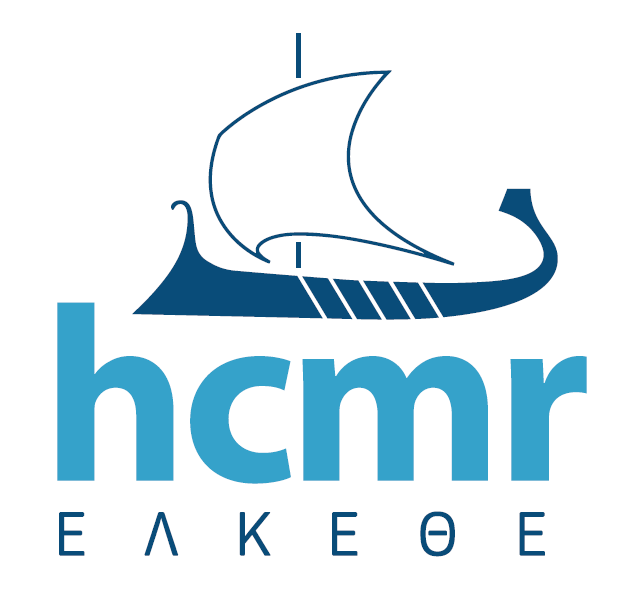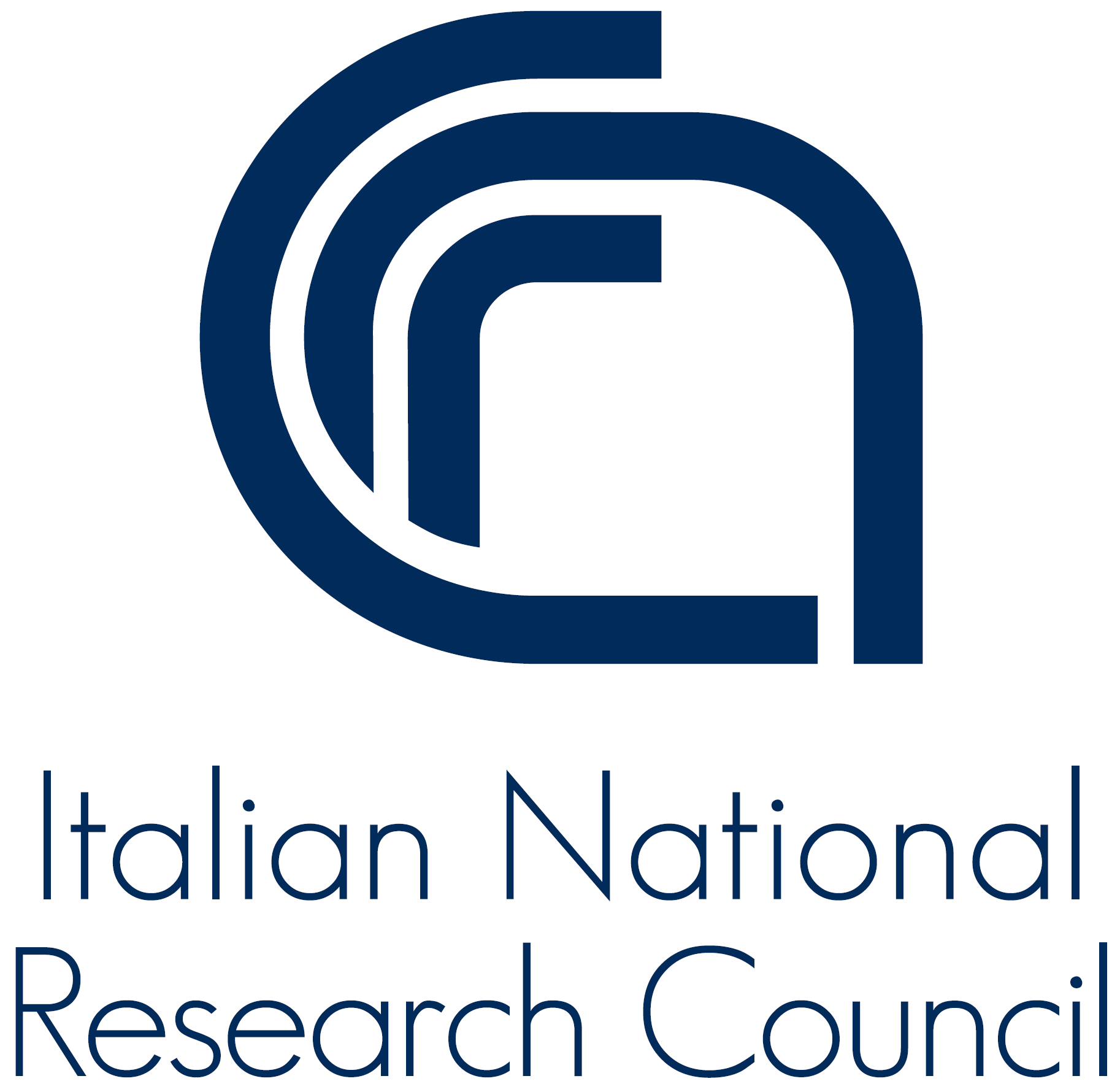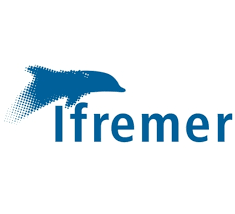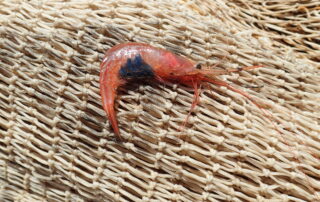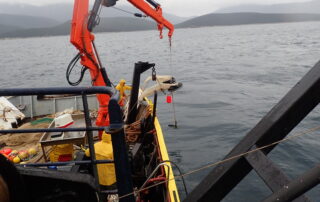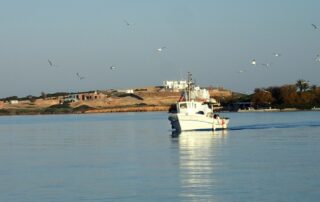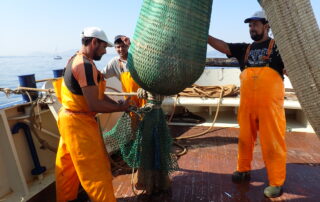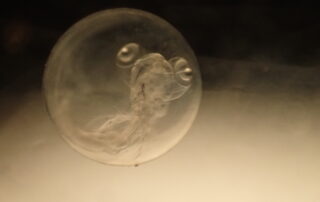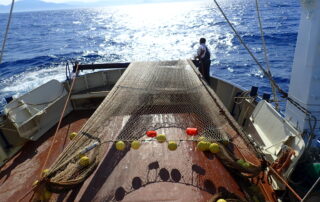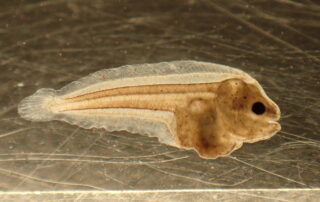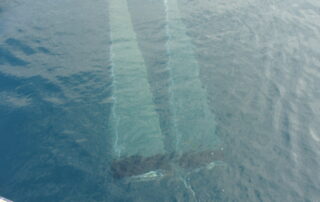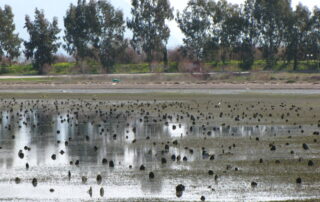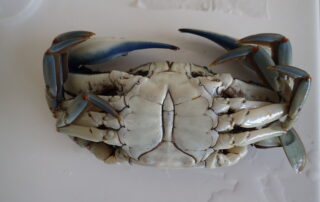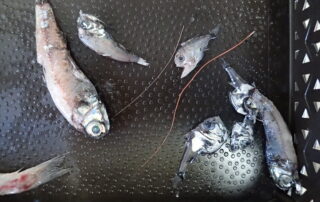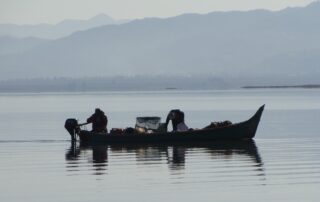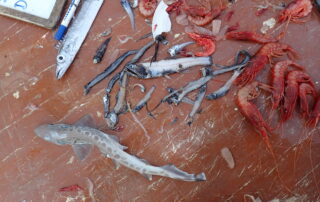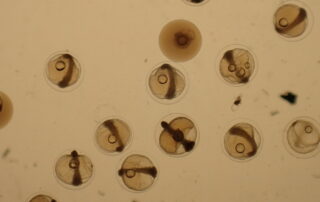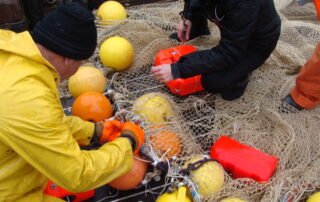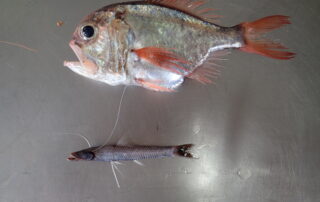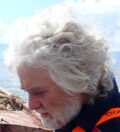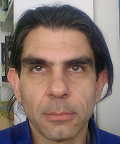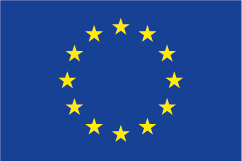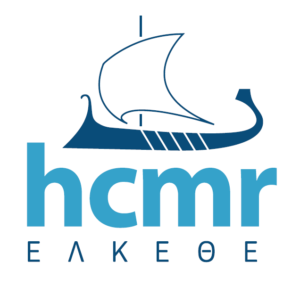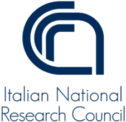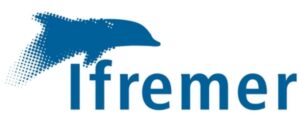PARTNERS
The Hellenic Centre for Marine Research (HCMR) is a governmental research organisation operating under the supervision of the General Secretariat for Research and Technology (GSRT) of the Ministry of Development and Investment. HCMR comprises three Research Institutes: the Institute of Marine Biology, Biotechnology and Aquaculture (IMBBC), the Institute of Marine Biological Resources and Inland Waters (IMBRIW) and the Institute of Oceanography (IO). The current project will be accomplished by IMBRIW personnel. The IMBRIW research activities focus on marine and inland water ecosystems, pursuing science-based conservation and management of aquatic ecosystems; providing scientific guidance to decision makers and supporting public awareness and education for conserving marine and inland water environments. It is the Institution responsible for the collection and management of fisheries data in Greece and for carrying out the direct monitoring surveys and producing assessments of the stocks. IMBRIW participates in the implementation of the National Fisheries Data Collection Program since 2002. IMBRIW scientists have an active role in the EU MEDITS and EU MEDIAS monitoring programs, discard monitoring and often keep a coordinating role in grants providing scientific advice to DG MARE for the implementation of the Common Fisheries Policy.
HCMR was involved in the MAREA Consortium (tender MARE/2009/05/Lot1) led by CoNISMa (Italy), as well as, to the MARE/2014/19 and 2016/22 calls participating in a list of projects that provided fisheries advice in the Mediterranean and Black seas regions. More information about HCMR and IMBRIW is available at our web pages http://www.hcmr.gr and http://imbriw.hcmr.gr/en/. The scientists involved in the current project have a long term experience in fisheries related studies and are involved in the implementation of the DCF in Greece.
COISPA Tecnologia & Ricerca (COISPA) is a cooperative of researchers and technicians founded in Bari, Italy, in 1978. It is running according to the no-profit principles of mutuality and its aim is applied research and study of living marine resources and ecosystems, marine environments, fisheries, aquaculture and production of eco-system services, with an interdisciplinary approach.
COISPA holds stable relationships and collaborations with international scientific institutions, organizations, and other bodies operating in the fields of fishery and aquaculture. COISPA has been involved in several national and EU research programs and integrated development projects, promoting eco-innovation, sustainable management of aquatic living resources and conservation measures. COISPA takes part to the EU Data Collection Framework (formerly Data Collection Regulation) in Italy since 2002. The tasks are the biological samplings in GSA18 and GSA19 and the scientific trawl survey at sea (MEDITS). COISPA has led the project MARE/2014/19 “Strengthening regional cooperation in the area of fisheries data collection in the Mediterranean and black sea” in 2015-2016.
COISPA has actively participated as partner to the grant procedure MARE/2016/22 in the following projects: 1. “Strengthening regional cooperation in the area of fisheries data collection”, Annex 1 “Biological data collection in EU waters” – Agreement Number – MARE/2016/22 – SI2.770115. STREAM. 2018-2019 led by CIBM. 2. Annex III “Biological data collection for fisheries on highly migratory species”” – Agreement Number – MARE/2016/22 – SI2.768893. RECOLAPE. 2018-2019 led by AZTI. 3. Annex IV “Socio-economic data collection for fisheries, aquaculture and the processing industry at EU level” – Agreement Number – MARE/2016/22- SI2.768889. 2018-2019 led by Thünen. The teams involved in previous projects and in the data collection will be also involved in this proposal.
The Consorzio per il Centro Interuniversitario di Biologia Marina ed Ecologia Applicata “Guido Bacci” (CIBM) is a non-profit making organisation constituted by the Municipality of Livorno and the Universities of Bologna, Florence, Modena, Siena, Pisa and Turin. It was funded in 1967.
Since 1983, CIBM is included in the Italian National Research Register of the University and Research Ministry and it obtained the acknowledgement by former Merchant Marine Ministry as Scientific Institute in the fishery and oceanology sectors. Since 2009, the quality management system of CIBM is in compliance with the standard UNI EN ISO 9001:2008 (certificate n. 1984409/S).
The CIBM Marine Fisheries Team will be involved in this proposal; they have more than 30 years of experience in the demersal resources evaluation, in monitoring of trawl and artisanal fisheries. Since 2002, CIBM is involved in the Data Collection Framework activities for biological samplings and trawl survey in the FAO-GFCM Geographical Sub-area 9 (Ligurian and northern Tyrrhenian Sea).
They have participated and coordinated several EU funded projects. In recent years, they coordinated the STREAM project under the Call MARE/2016/22, and the RECFISH project (EASME/EMFF/2016/032). Currently they are coordinating the IMPLEMED project (EASME/EMFF/2016/032).
The National Research Council (CNR) is the largest public research institution in Italy, the only one under the Research Ministry performing multidisciplinary activities. Founded as legal person on 18 November 1923, CNR mission is to perform research in its own Institutes, to promote innovation and competitiveness of the national industrial system, to promote the internationalization of the national research system, to provide technologies and solutions to emerging public and private needs, to advice Government and other public bodies, and to contribute to the qualification of human resources.
The Institute CNR-IREA (Istituto per ilRilevamentoElettromagneticodell’Ambiente, http://www.irea.cnr.it/en/) develops methodologies and technologies for acquisition, processing, fusion and interpretation of images and data obtained by electromagnetic sensors – operating on satellite, aircraft and in situ – and the dissemination of information extracted, aimed at monitoring environment and territory, at non-invasive diagnostic and at electromagnetic risk assessment. In addition, methodologies and technologies are developed for the construction of infrastructures for geospatial data and biomedical applications of electromagnetic fields. The Institute has consolidated expertise in the management of geoinformation in heterogeneous domains, among which marine data.
The Institute CNR-IRBIM (Institute of Marine Biological Resources and Biotechnologies http://www.irbim.cnr.it) has acquired an extensive experience in undertaking international and national programs concerning data collection, assessment and management of fishery resources. The Institute conducts researches mostly in the central Mediterranean region focusing on fisheries and aquaculture, including technology and ecosystem modelling. CNR-IRBIM has been involved in the Italian National Program according to the Data Collection Framework since 2002. The main research activities of CNR-IRBIM related to the proposal cover the definition of data need for stock assessment of fisheries resources and production of scientific advice for fisheries management.
CNR participates to a number of programs also linked to this project (e.g. MAREFRAME, MINOUW, MANTIS, RECFISH, MED_UNITS).
Ifremer (French Ocean Research Institute, 1,500 employees, 211 M€ annual budget, 25 mainland and overseas locations in France) was created in 1984 and is a “public industrial and commercial institution” (EPIC) under the joint supervision of the Ministry of Higher Education and Research, and the Ministry of Environment, Energy and Sea.
The history of IFREMER is the merger of two worlds: That of marine fisheries in the second half of the 19th century with the creation of the Marine Fisheries Technical Service which evolved into the Marine Fisheries Scientific and Technical Service (OSTPM) by virtue of the Public Finance Act of 31 December 1918. It then became the Marine Fisheries Scientific and Technical Institute (ISTPM) 35 years later on 14 October 1953. Then, the history of IFREMER crossed paths with the development of oceanography and the increase in ocean exploration and measurements taken during expeditions in the early 20th century. After World War II, a Committee for Exploitation of the Oceans (COMEXO) was created. On 3 January 1967, Act 67-7 replaced COMEXO with the National Centre for Exploitation of the Oceans (CNEXO), specialised in ocean exploration with a strong emphasis on technology.
Through research, studies and expert assessments performed on main current socio-economic questions (climate change, marine biodiversity, pollution prevention, sustainable fishery and aquaculture, etc.), Ifremer contributes to increase knowledge about the oceans and their resources, the monitoring of marine and coastal zones and the sustainable development of maritime activities. For these goals, the Institute designs and operates observational, experimental and monitoring tools and facilities.
Well-established in the international scientific community, our scientists, engineers and technicians are committed to advance knowledge about our planet’s last unexplored frontiers. They provide the science we need for informed decision-making and public policy and they transfer this knowledge and technology to businesses to fulfill public and private needs. Core to our mission is also to strengthen public awareness about the importance of understanding the ocean and its resources, and empowering future generations of leaders through education and outreach national campaigns.
NISEA is an institute involved in scientific research for the primary sector, with a special focus on fisheries and aquaculture. With a specific experience in the field of economics and management of marine fisheries, NISEA prepares and develops studies and research projects regarding the whole fisheries sector at both national and international level. The scientific activities of the company embrace all sectors of the fishing iniidustry: catching, aquaculture, processing, marketing, etc. NISEA is also involved in the technical assistance to the government for the production of statistics and the definition of management plans for the sector. The wide range of research activities carried out by NISEA staff allowed the company to acquire skills in different subjects, like bio-economic modelling, quantitative methods for the evaluation of public strategies of intervention, the impact assessment of biological and environmental factors on the socio-economic system, the definition of socio-economic indicators for an ex-post evaluation of management policies, the assessment of fisheries and aquaculture impacts on local economies.
Our services: (i) Collection, processing and statistical analysis of data related to the fisheries sector, (ii) Studies and research projects related to fisheries, aquaculture and fish processing, (iii) Preparation, monitoring and evaluation of management plans for the Fishing Areas, (iv) Studies and research projects related to the commercialization of seafood products, sales channels and the economic efficiency of the value chain, (v) Advisory services for the certification of fish products and related productive processing, (vi) Support for the Producers, their Associations and Organizations for the presentation of innovative projects in the context of the 2014-2020 EMFF Planning, (vii) Preparation, monitoring and valuation of Local Development Strategies for the Coast Action Groups, (viii) Training on matters related to the collection and use of statistical data in the fisheries sector.

